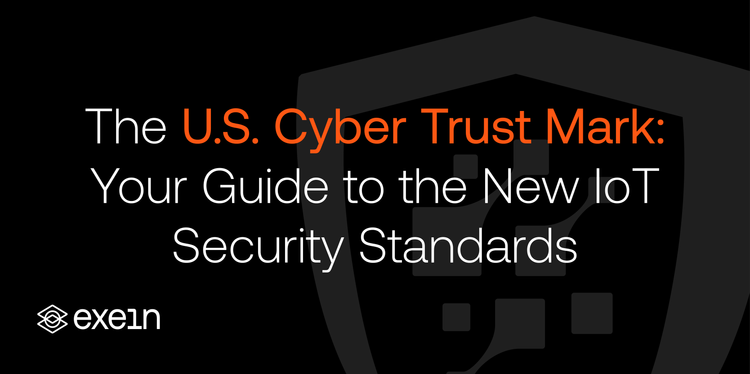Protecting the Future: Why Embedded IoT Security Is Essential for the Automotive Industry

As technology advances, the automotive industry is becoming more reliant on Internet of Things (IoT) devices to enhance the driving experience. However, with this increased connectivity comes a heightened risk of cyber attacks. That's why IoT embedded security is essential for the automotive industry.
What is IoT Embedded Security?
IoT embedded security refers to the integration of security protocols and features into IoT devices at the hardware and software levels. This ensures that the device is secure from the moment it is manufactured, making it much harder for cybercriminals to exploit vulnerabilities.
In the automotive industry, IoT embedded security can protect a wide range of devices, from infotainment systems to safety-critical components like brakes and steering. By embedding security measures into these devices, manufacturers can ensure that their products are secure and reliable.
The Importance of IoT Embedded Security for the Automotive Industry
The automotive industry is facing an increasing number of cyber threats. Hackers can exploit vulnerable IoT devices to gain access to sensitive data, take control of the car's systems, or even cause accidents.
For example, in 2015, security researchers were able to remotely take control of a Jeep Cherokee's infotainment system, steering, and brakes. This incident highlighted the need for improved security measures in the automotive industry.
IoT embedded security is crucial for protecting the safety of drivers and passengers, as well as the reputation of automotive manufacturers. By ensuring that IoT devices are secure from the outset, manufacturers can prevent cyber attacks and build trust with their customers.
Risks and Vulnerabilities of IoT Devices in Cars
IoT devices in cars are vulnerable to a range of cyber threats. Hackers can exploit vulnerabilities in the software or hardware of these devices to gain access to sensitive data, take control of the car's systems, or even cause accidents.
One of the biggest risks is that of remote attacks. Hackers can remotely access vulnerable IoT devices in cars, such as infotainment systems, and use them as a gateway into the car's other systems. From there, they can take control of the car or steal sensitive data.
Another risk is that of physical attacks. Hackers can physically tamper with IoT devices in cars, such as sensors or cameras, to gain access to the car's systems. For example, they could replace a camera with a fake one to gain access to the car's surroundings.
Benefits of IoT Embedded Security in the Automotive Industry
IoT embedded security offers a range of benefits for the automotive industry.
First and foremost, it improves the safety and reliability of cars. By embedding security measures into IoT devices, manufacturers can prevent cyber attacks and ensure that their products are safe and reliable for drivers and passengers.
Secondly, IoT embedded security can improve the overall driving experience. By integrating security features into infotainment systems and other IoT devices, manufacturers can provide drivers with a more secure and convenient experience.
Finally, IoT embedded security can protect the reputation of automotive manufacturers. By ensuring that their products are secure and reliable, manufacturers can build trust with their customers and avoid damaging cyber attacks.
IoT Embedded Security Solutions for the Automotive Industry
There are several IoT embedded security solutions that can be implemented in the automotive industry.
One solution is to use secure boot and firmware validation to ensure that IoT devices only run authorized software. This can prevent hackers from exploiting vulnerabilities in the software of these devices.
Another solution is to use hardware security modules (HSMs) to encrypt sensitive data and protect the keys used to access this data. HSMs can also be used to authenticate users and devices, preventing unauthorized access.
Finally, real-time monitoring can be used to detect and prevent cyber attacks. By monitoring the behavior of IoT devices in real-time, manufacturers can detect anomalous behavior and take action to prevent cyber attacks.
Future Trends in IoT Embedded Security in the Automotive Industry
The future of IoT embedded security in the automotive industry looks promising.
One trend is the use of artificial intelligence (AI) to detect and prevent cyber attacks. AI algorithms can analyze the behavior of IoT devices in real-time, detecting anomalous behavior and taking action to prevent cyber attacks.
Another trend is the use of blockchain technology to secure IoT devices. By using a decentralized ledger to store data and authenticate users and devices, manufacturers can improve the security of their IoT devices.
Finally, there is the trend towards more collaborative approaches to security. Manufacturers are increasingly working together to share information about threats and vulnerabilities, and to develop best practices for IoT embedded security.
Case Studies of Successful IoT Embedded Security Implementations in the Automotive Industry
There are several case studies of successful IoT embedded security implementations in the automotive industry.
One example is the BMW Group, which has implemented a range of security measures to protect its cars from cyber attacks. These measures include secure boot and firmware validation, as well as real-time monitoring of IoT devices.
Another example is the Tesla Model S, which features a range of security measures to protect against cyber attacks. These measures include secure boot and firmware validation, as well as encryption of sensitive data.
Conclusion
In conclusion, IoT embedded security is essential for the automotive industry. By embedding security measures into IoT devices, manufacturers can protect the safety of drivers and passengers, improve the driving experience, and protect their reputation.
Exein can be the best IoT cybersecurity partner as Exein solutions offer Embedded Protection, Real-time Monitoring, Regular Updates, AI-Driven Security, Seamless Scalability, and allow you keep a small team. With the right IoT embedded security solutions in place, the automotive industry can continue to innovate and provide drivers with a safe, reliable, and secure driving experience.




